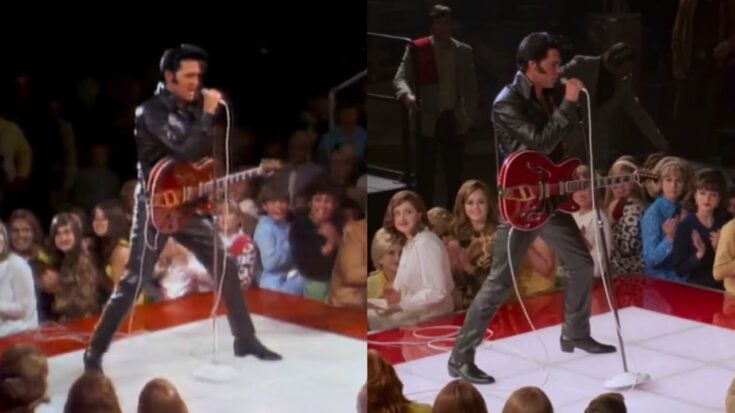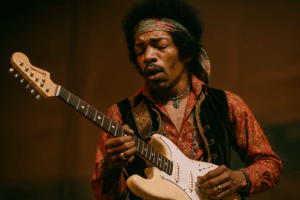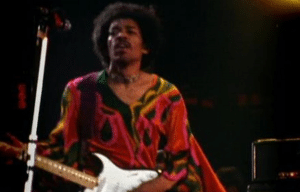Elvis Presley’s Stepbrother Slams Austin Butler Biopic for Making Elvis Look Like a ‘Wimp’

via ElvisTheTigerMan / YouTube
Baz Luhrmann’s 2022 film Elvis brought the King of Rock and Roll back into the spotlight for a new generation. Austin Butler’s performance earned him critical acclaim, including an Academy Award nomination, and helped solidify his career in Hollywood. Despite the film’s positive reception, not everyone was pleased with how Elvis and those around him were portrayed.
Among the harshest critics is David Stanley, Elvis Presley’s stepbrother, who spent years living at Graceland and traveling with the singer during his Las Vegas residencies. Stanley’s perspective is uniquely personal, and he believes the movie got key details wrong. His comments reveal frustration with both the depiction of Elvis and his infamous manager, Colonel Tom Parker.
For Stanley, the issue isn’t whether the film entertained audiences, but whether it told the truth about the man he knew so closely. His response highlights the tension between Hollywood storytelling and the reality of Elvis’s life and relationships.
View this post on Instagram
David Stanley’s Criticism of Elvis
Stanley made it clear he was deeply disappointed with the way Luhrmann’s Elvis shifted the story to center around Colonel Parker. While Tom Hanks’ portrayal drew strong reactions, Stanley insisted Parker wasn’t the villain the film made him out to be. To him, Parker was a demanding businessman, but far from the “animal” depicted on screen.
Having known Parker since childhood, Stanley argued that the manager was serious about his work and dedicated to Elvis’s career. While he admitted Parker’s decisions weren’t always popular, he felt they reflected tough business realities rather than cruelty or exploitation. Hollywood, he suggested, exaggerated Parker’s flaws to create a dramatic antagonist.
More importantly, Stanley felt the portrayal damaged Elvis’s legacy. By making Parker into a villain, the film also weakened Elvis’s image, reducing him to someone manipulated and powerless. “Shame on Hollywood,” Stanley said, “for depicting Colonel Parker as the devil and making Elvis look like a wimp.”
https://twitter.com/ElvisNumber1/status/1753131596545192186
A Different Take on Priscilla
Interestingly, Stanley had a far more favorable view of Sofia Coppola’s 2023 film Priscilla. The movie, based on Priscilla Presley’s memoir Elvis and Me, portrays Elvis in a complicated and sometimes unflattering light. Yet Stanley believed the depiction was closer to reality than Luhrmann’s version.
He explained that people disliked Priscilla because of its honesty, but he appreciated its accuracy. Having been around Elvis and Priscilla during their marriage, Stanley said he recognized the authenticity of Coppola’s storytelling. “I saw the movie,” he shared, “and I thought she was right on.”
His support for Priscilla contrasted sharply with Lisa Marie Presley’s stance, who criticized the film and opposed its release. Stanley argued that he, along with Priscilla, had more direct knowledge of Elvis during those years than Lisa Marie, who was only nine when her father died.
View this post on Instagram
Austin Butler’s Immersive Role
While Stanley’s criticism focused on how the story was told, he did acknowledge Butler’s skill as an actor. He praised the musical recreations in Elvis and admitted that Butler gave a strong performance. Still, Stanley maintained that “nobody is Elvis,” highlighting the impossibility of fully capturing the singer’s charisma.
Butler himself has spoken openly about the toll the role took on him. He spent two years immersed in Elvis’s voice, mannerisms, and personality, to the point where he struggled to return to his own identity once filming ended. His dedication to method acting earned him praise but also left him exhausted and disoriented.
In later interviews, Butler revealed that he has since stepped away from such immersive approaches. The experience of playing Elvis was life-changing, but he admitted that he needed to rediscover himself once the cameras stopped rolling. For fans, the role cemented his reputation—but for Elvis’s stepbrother, the performance still couldn’t overcome what he felt was a flawed narrative.












